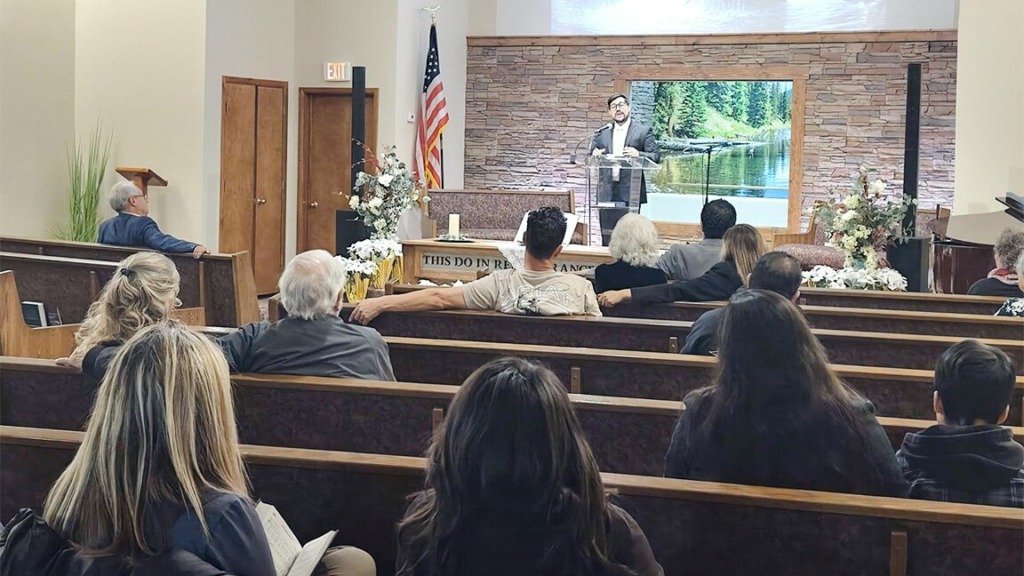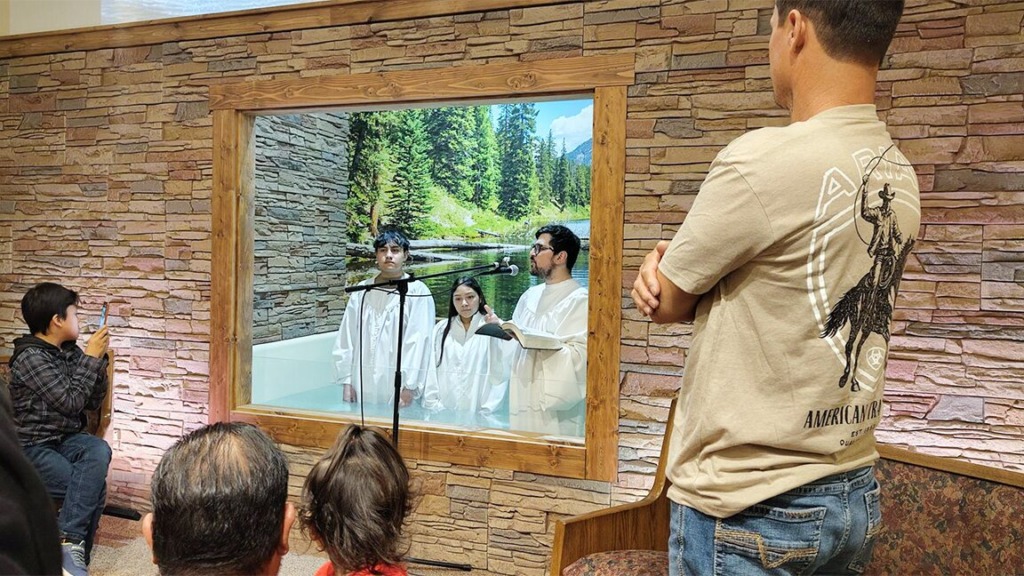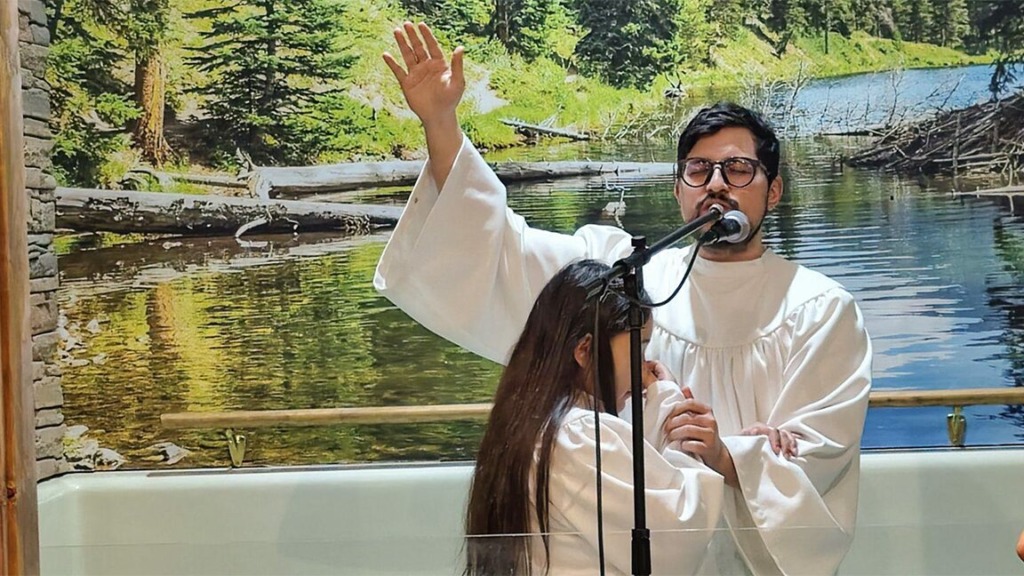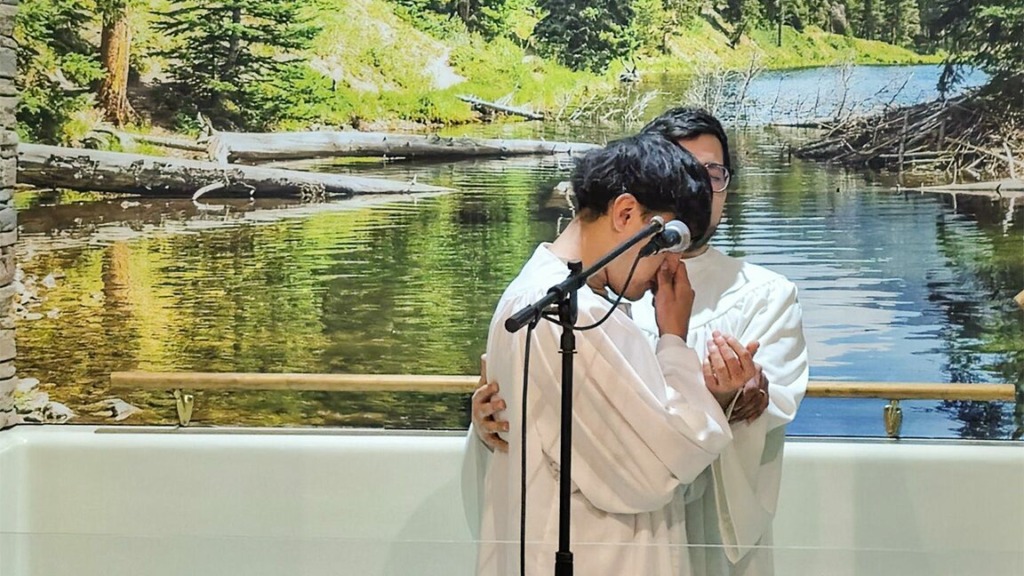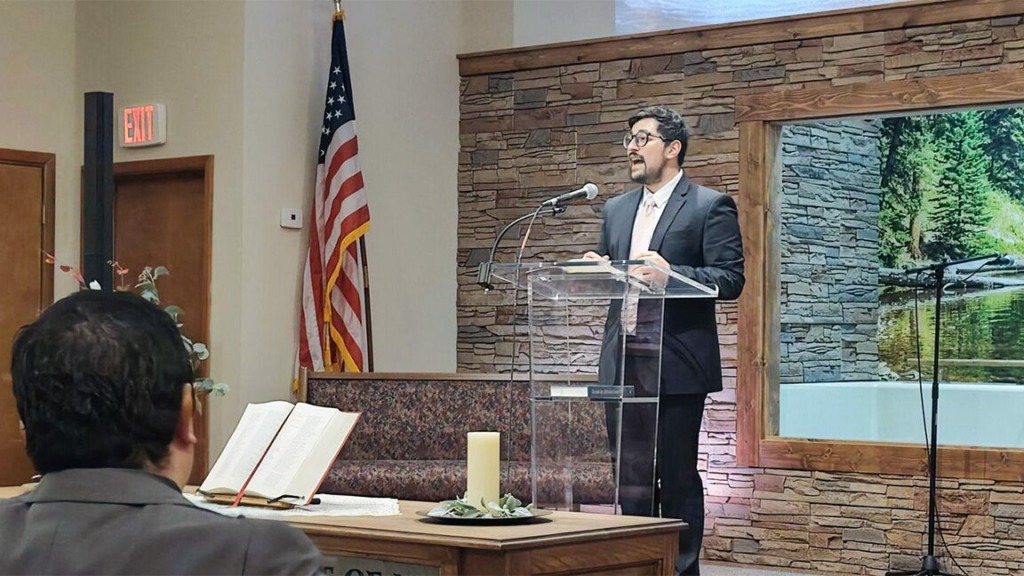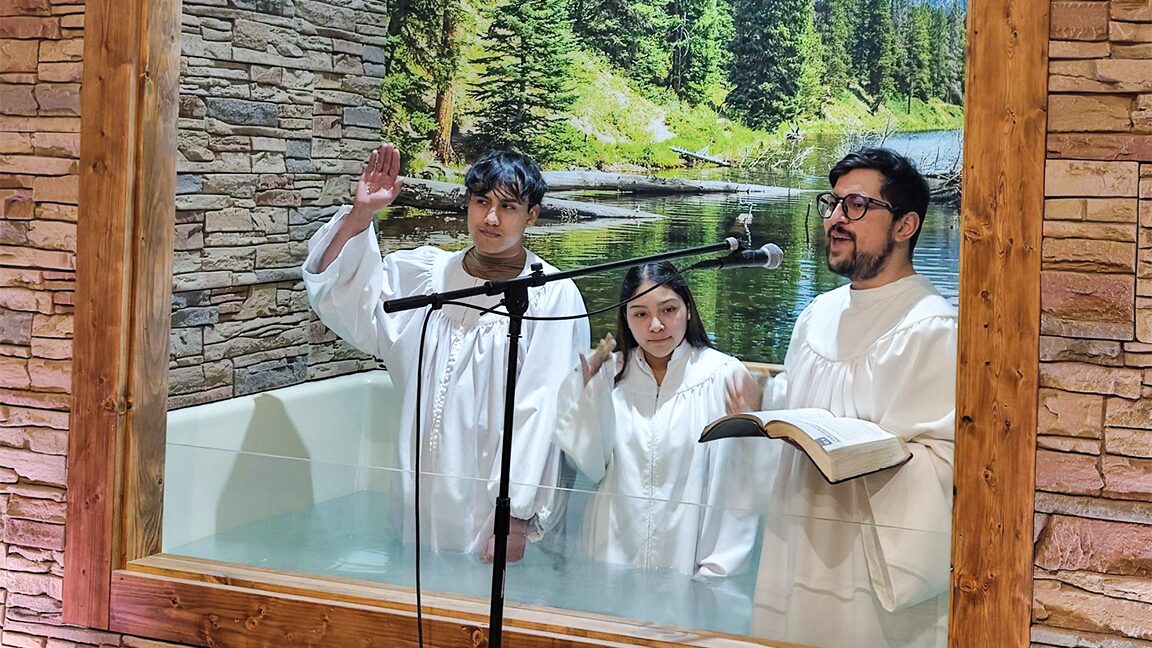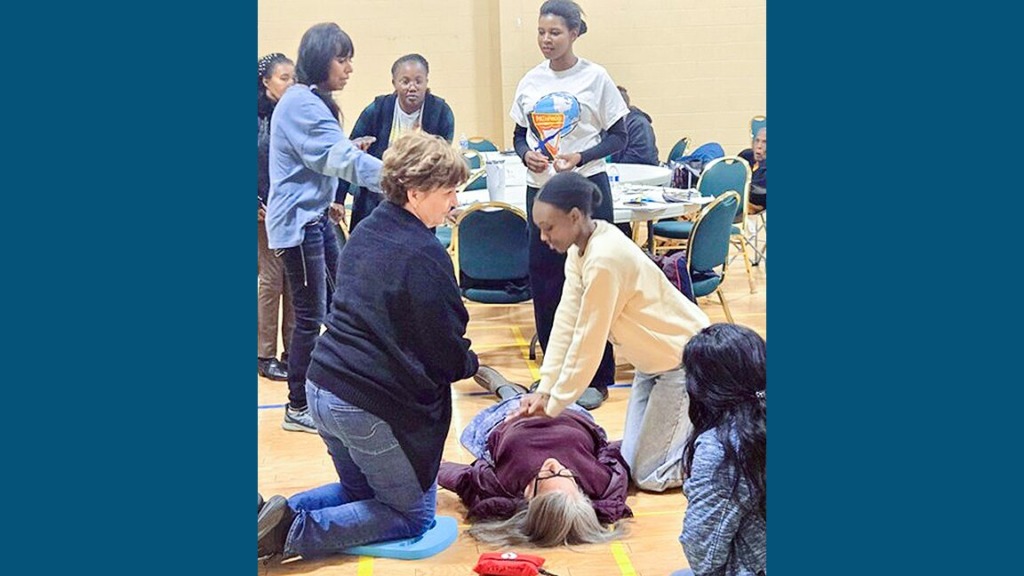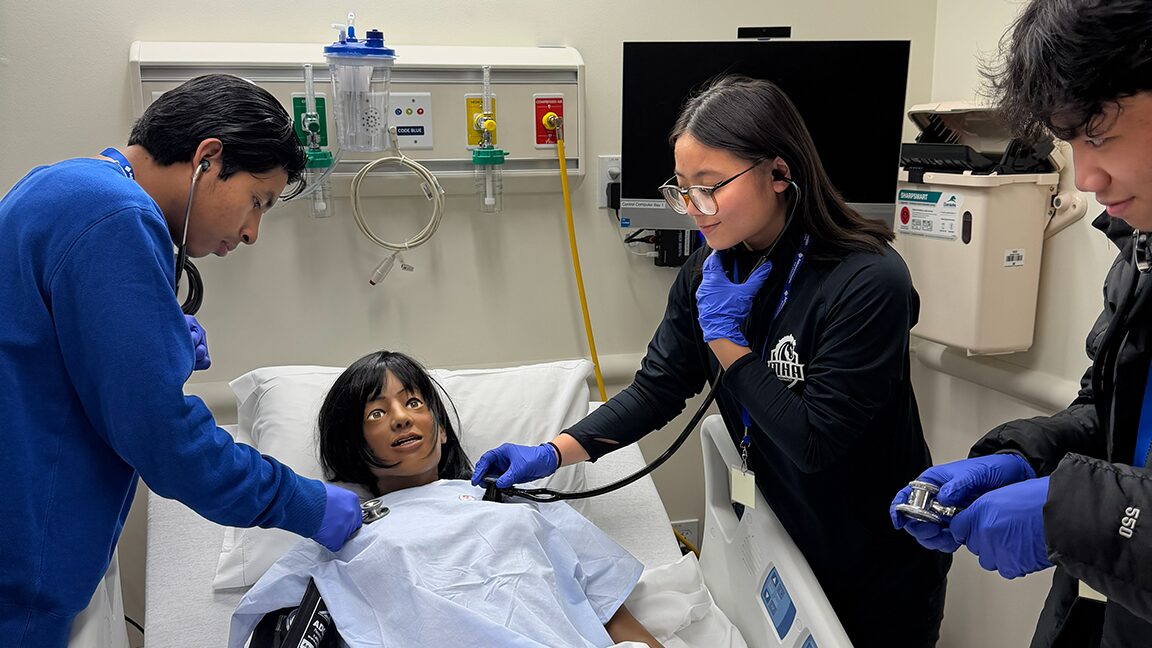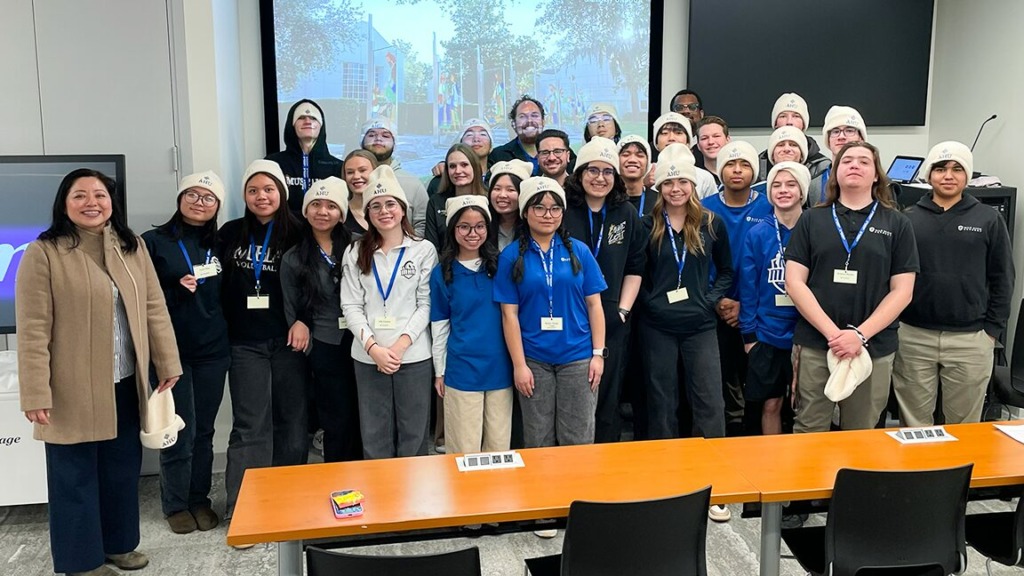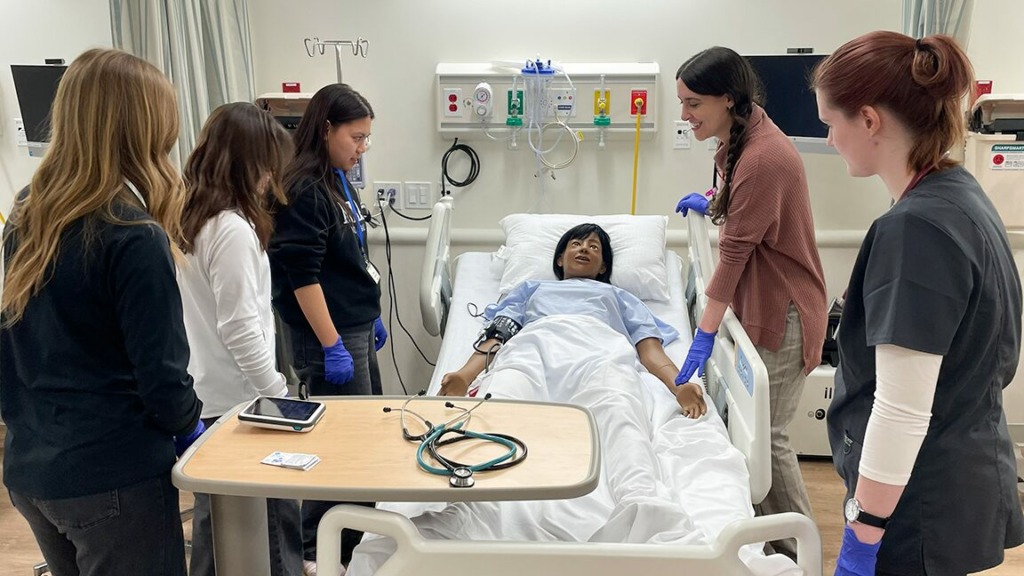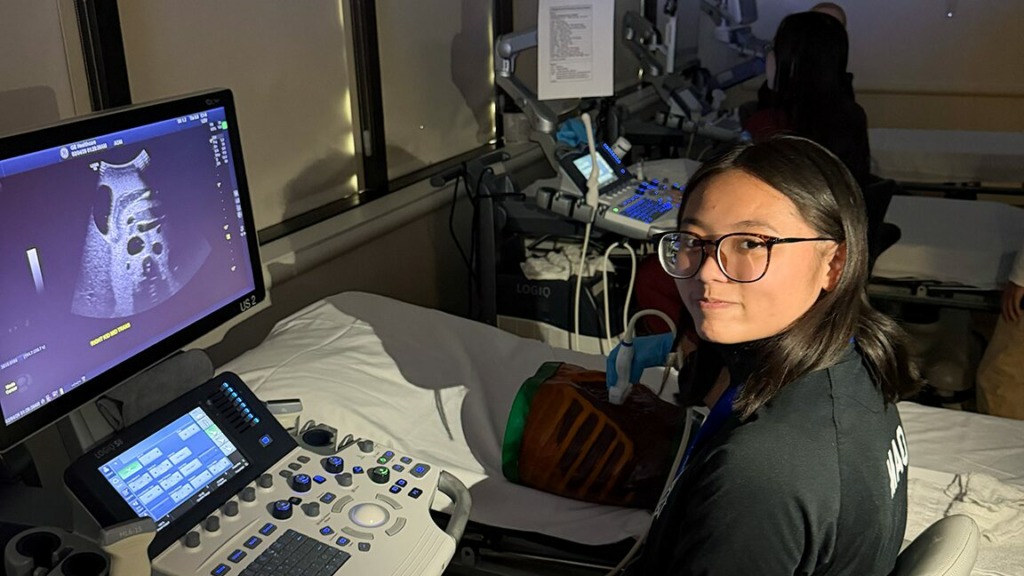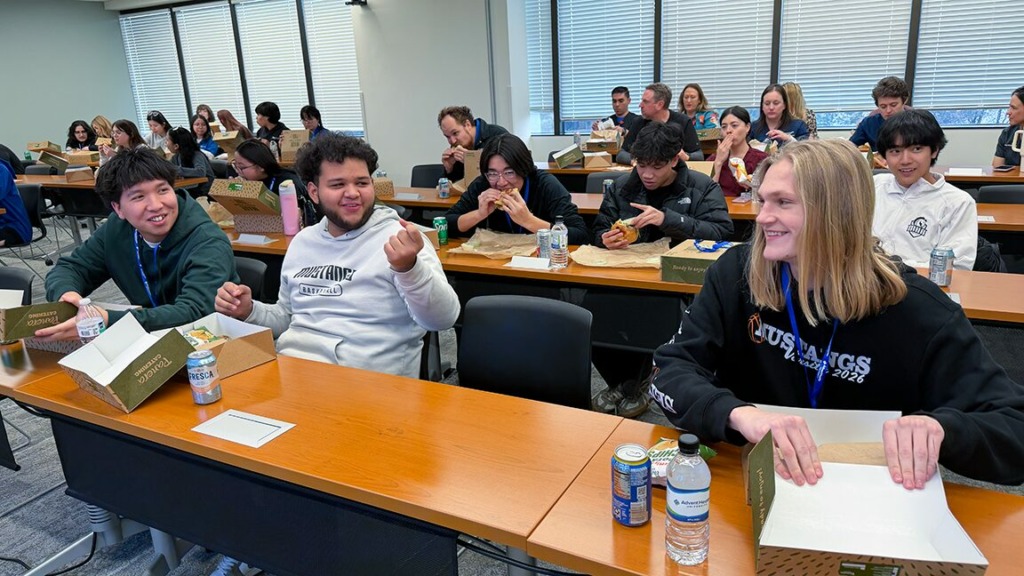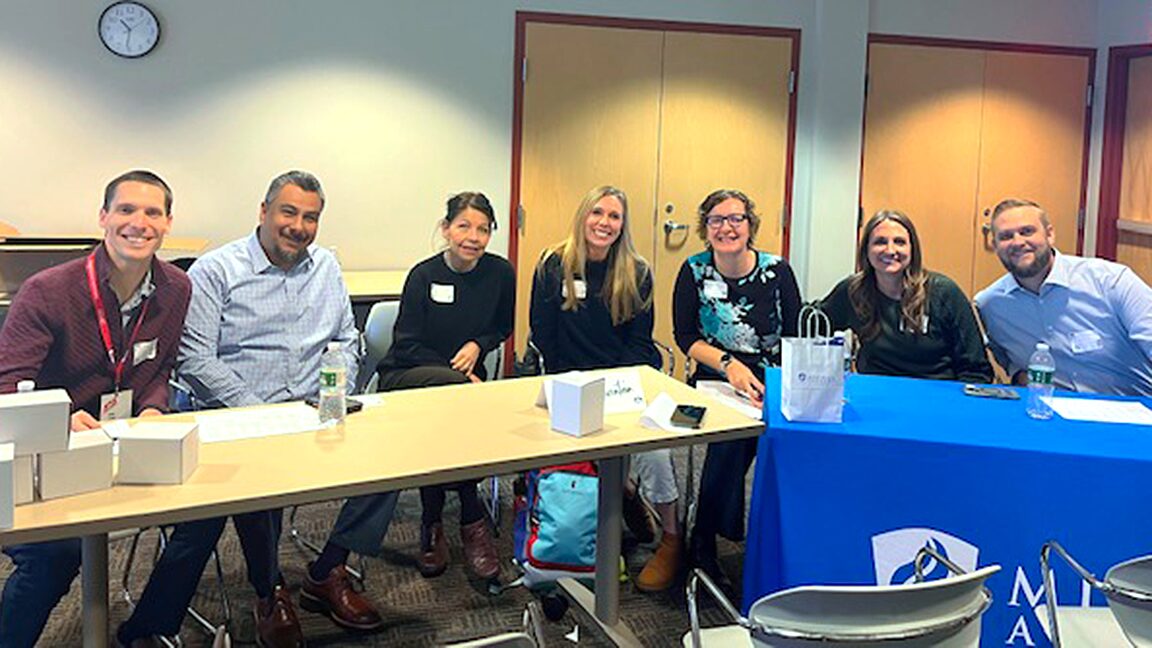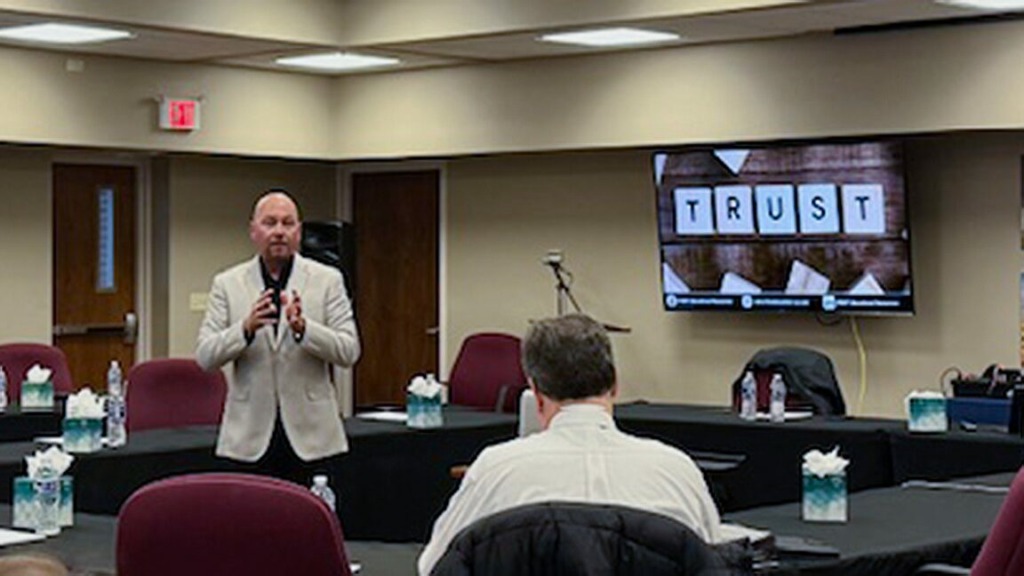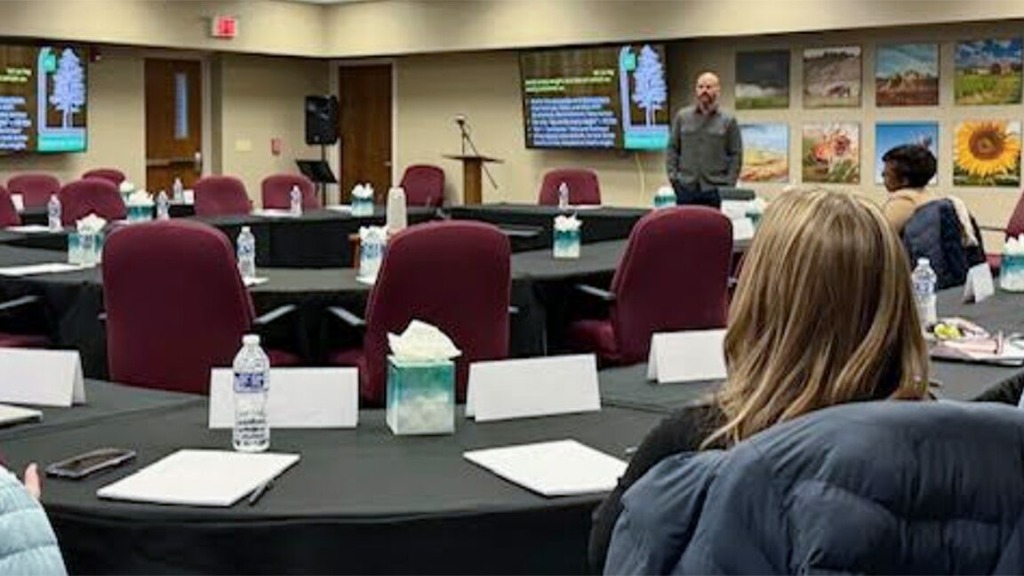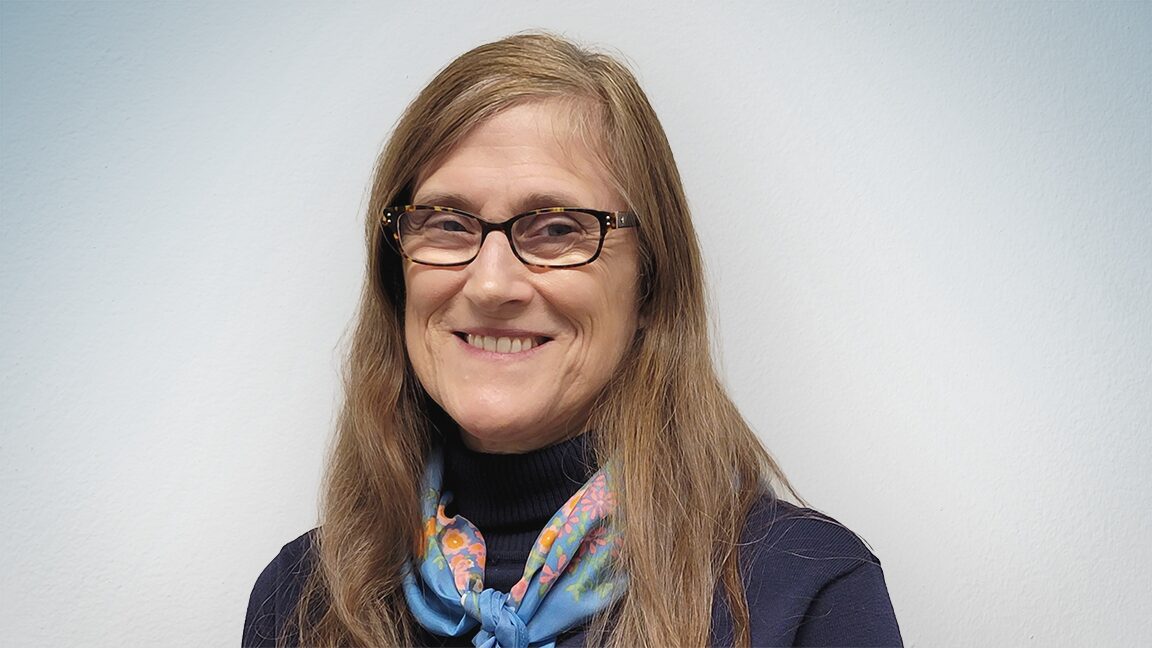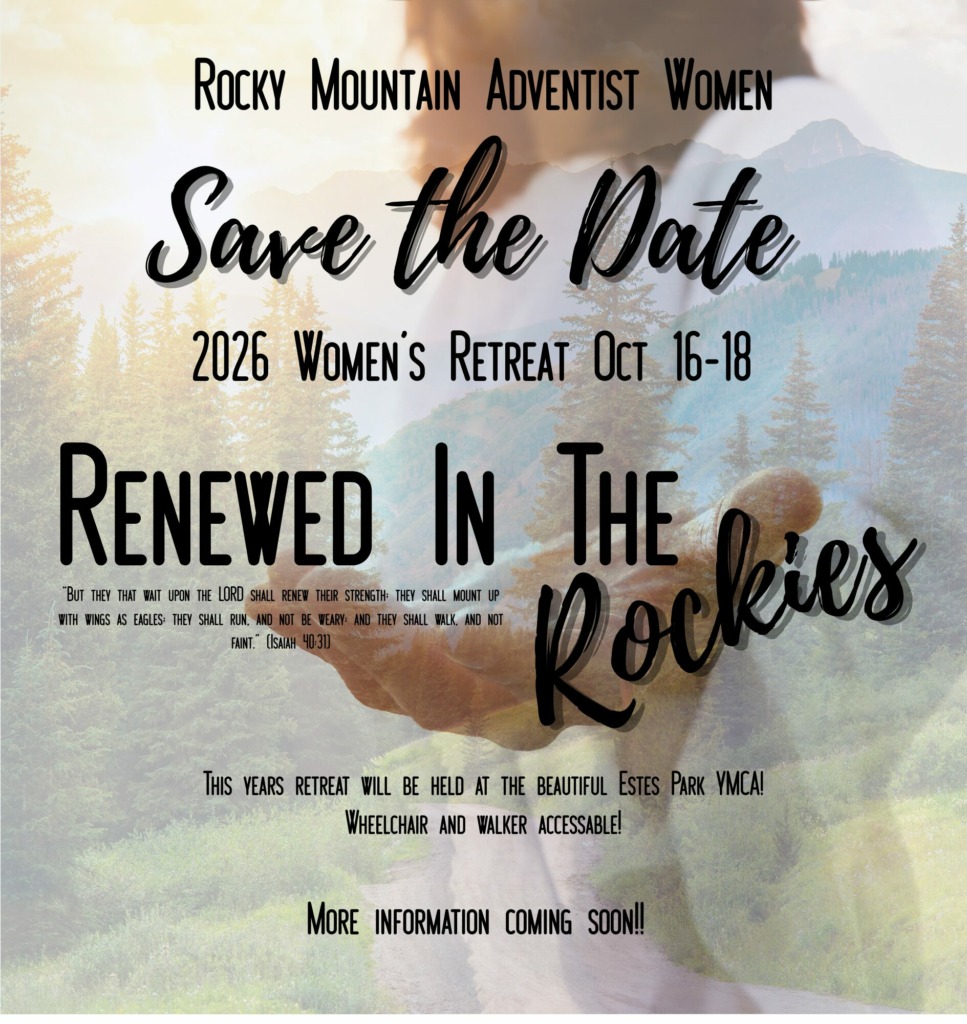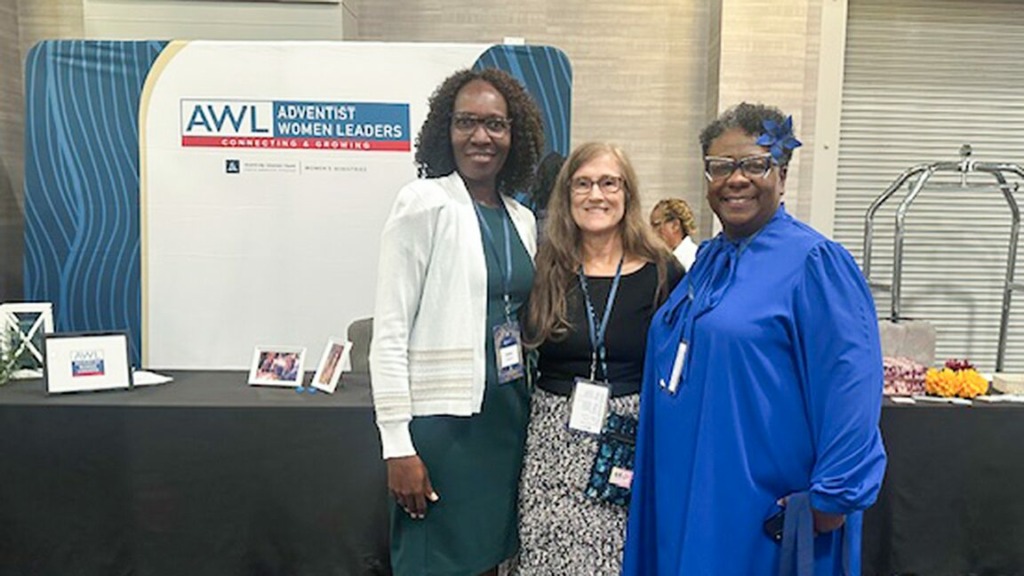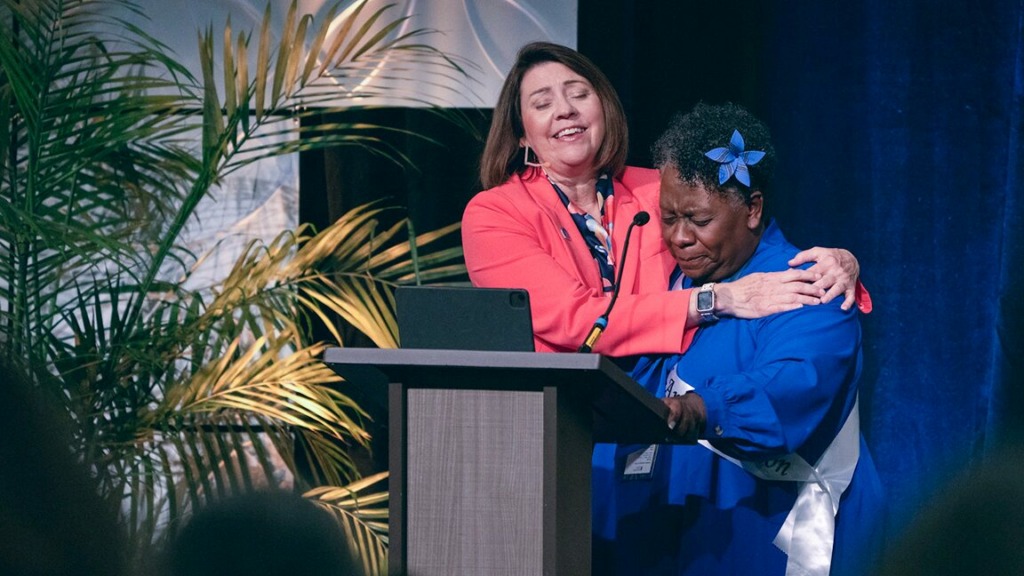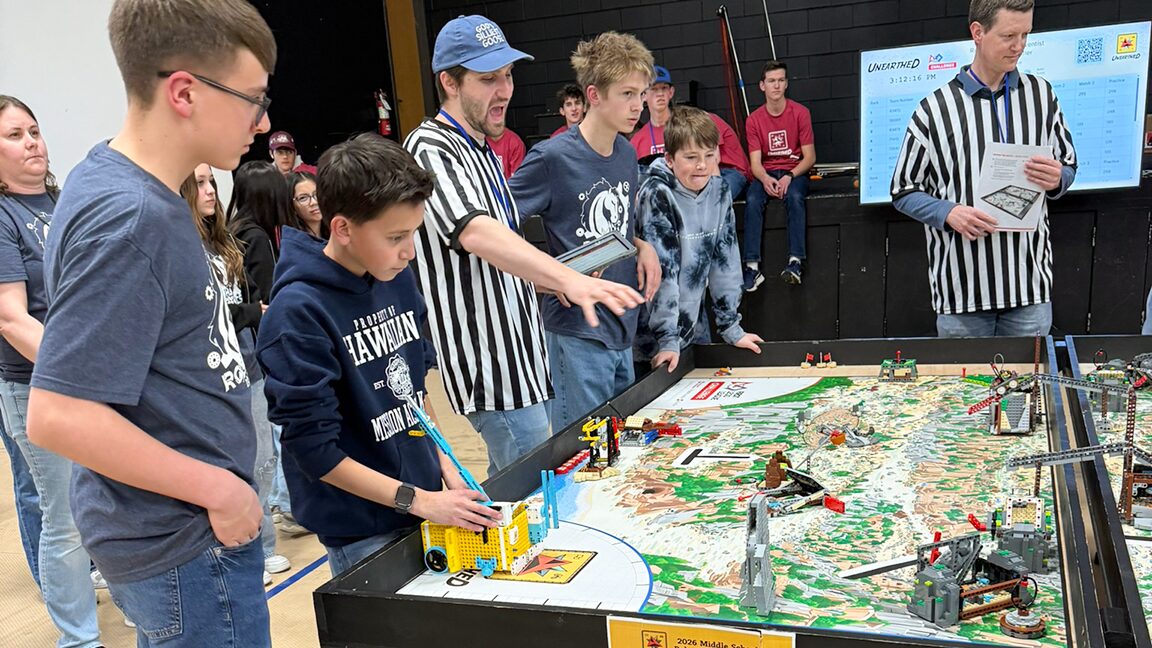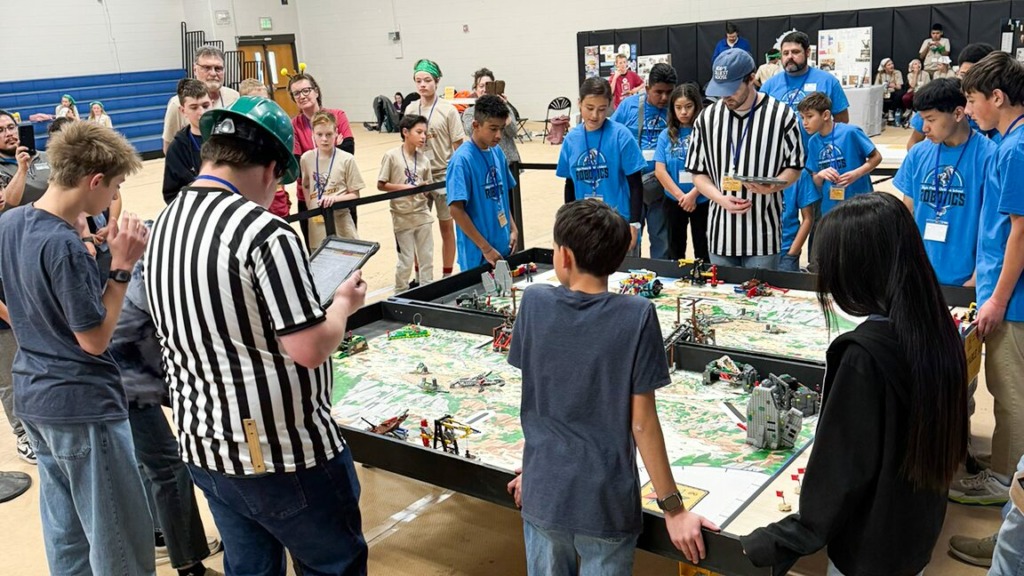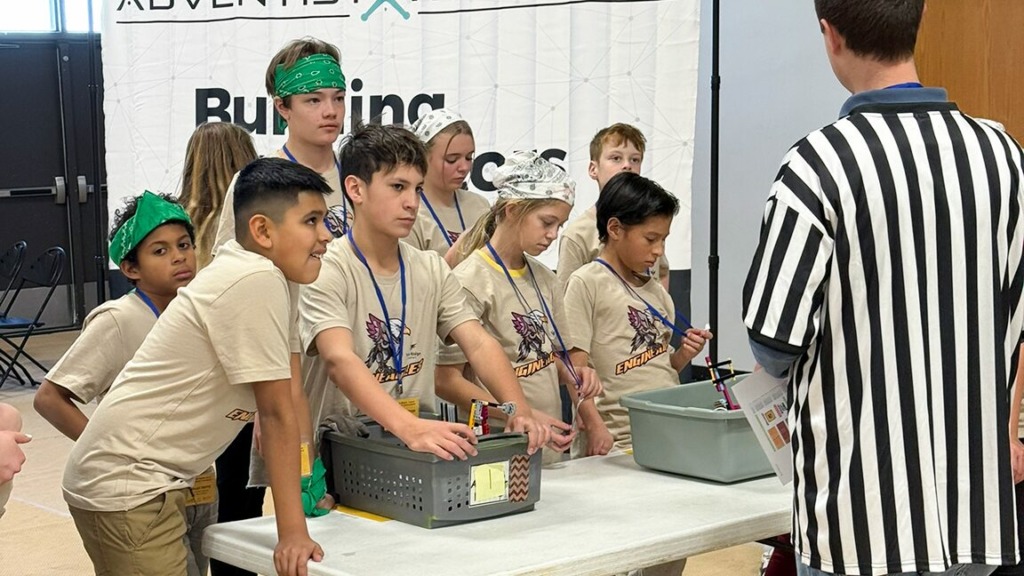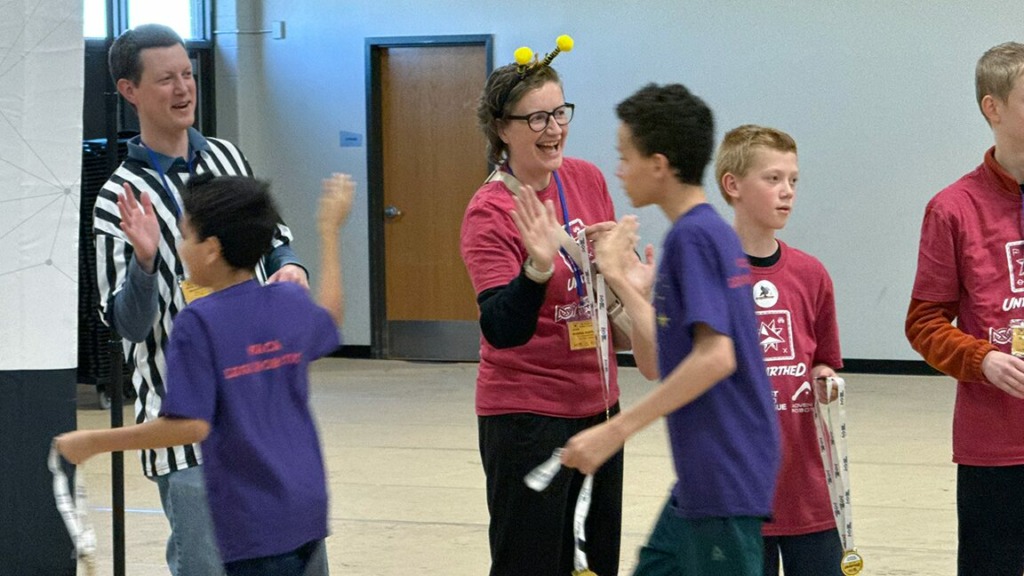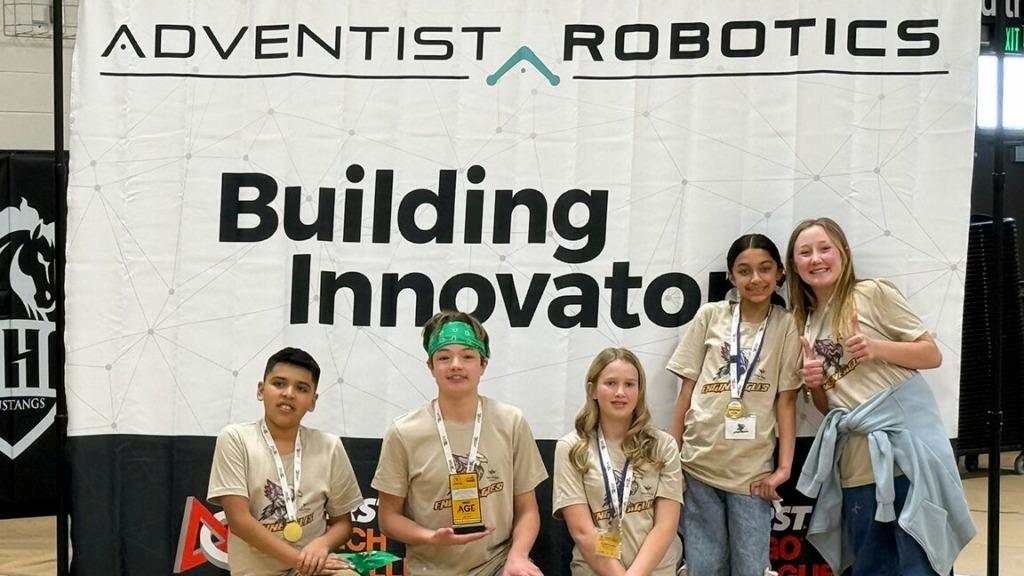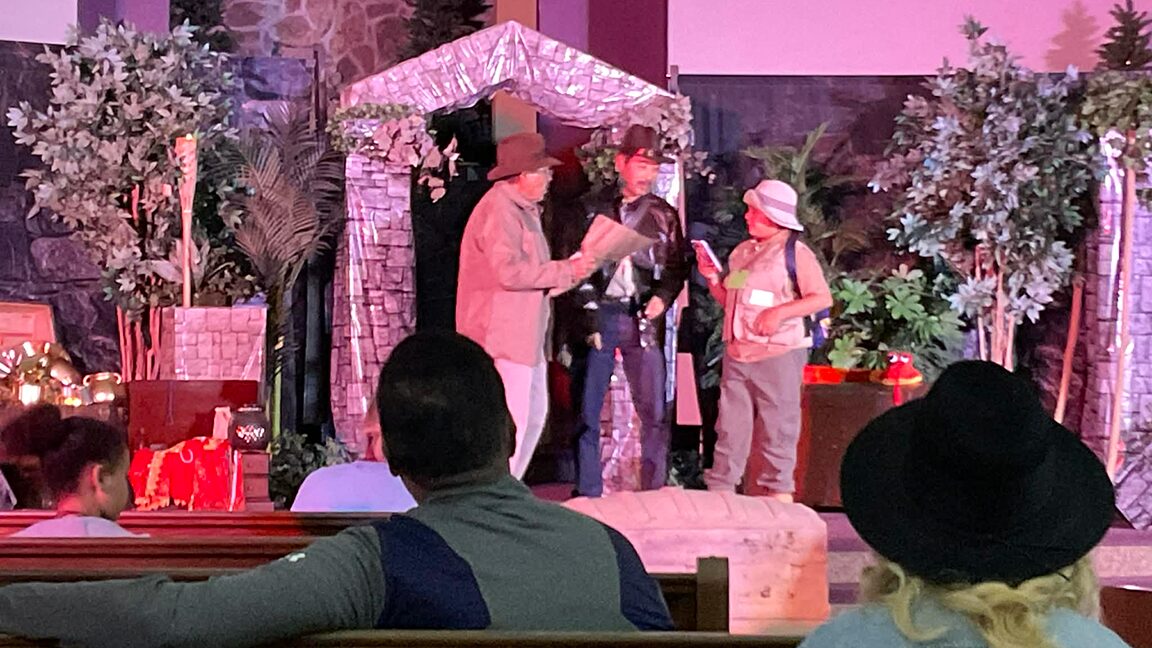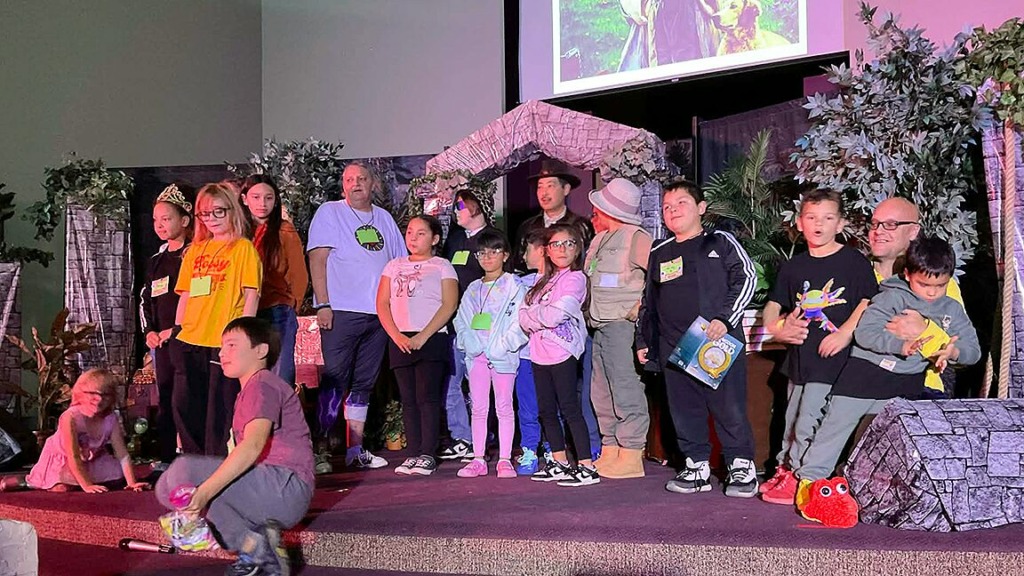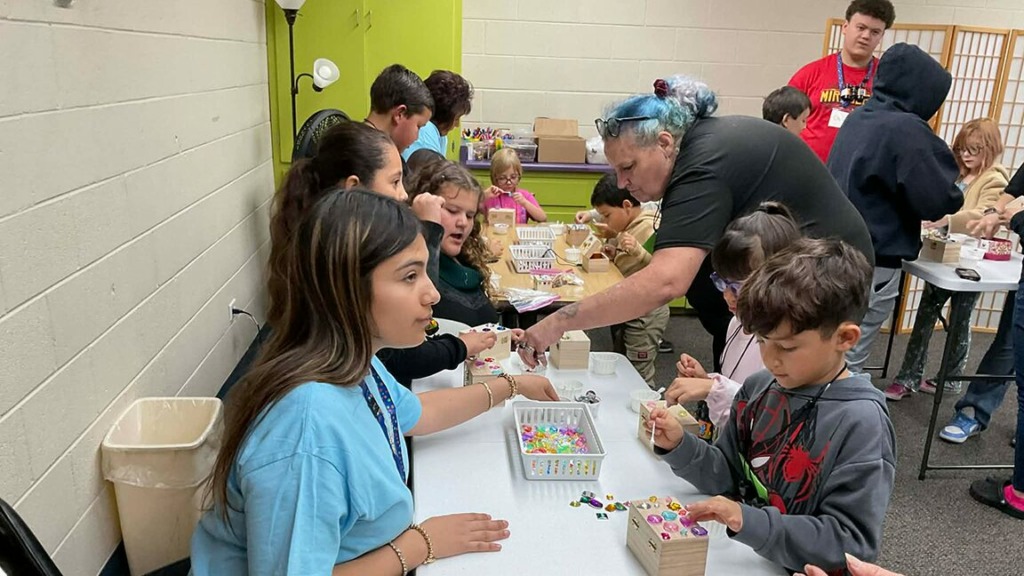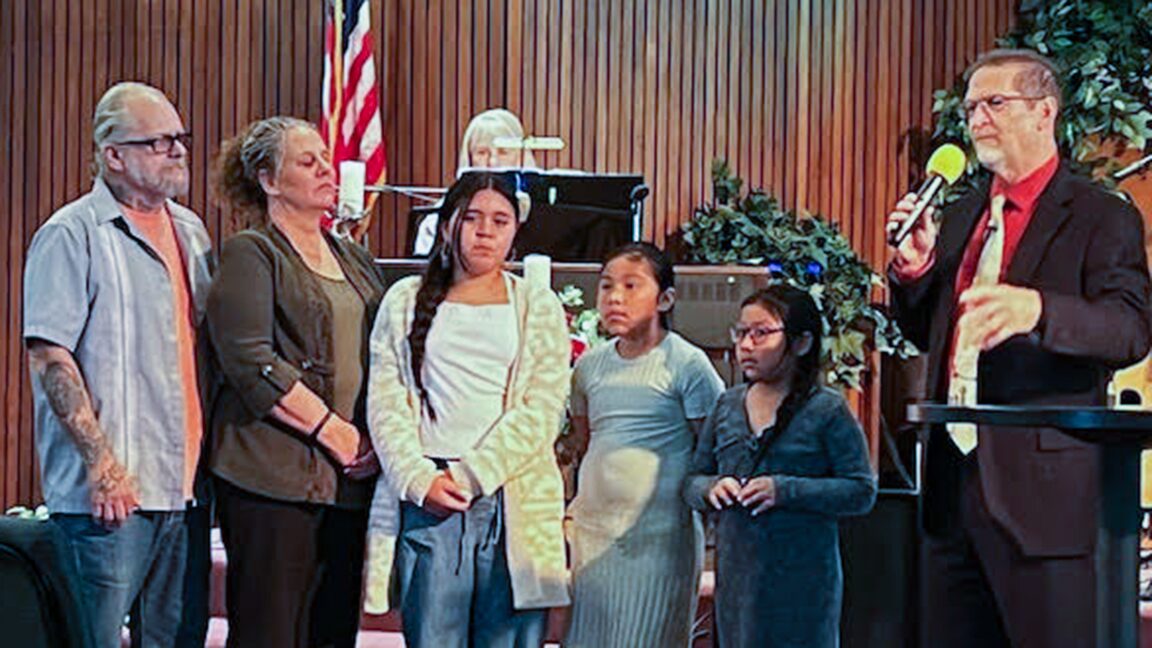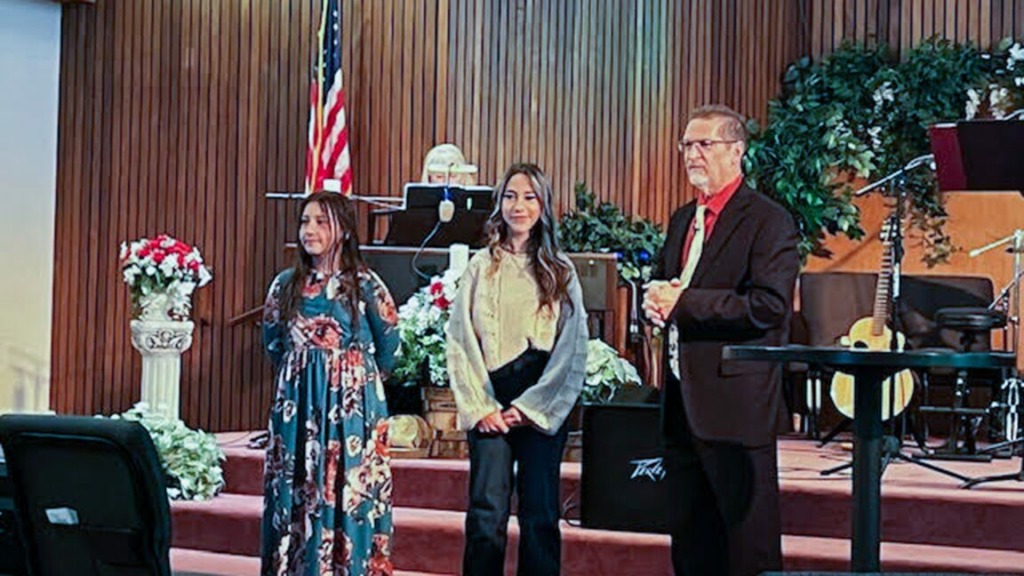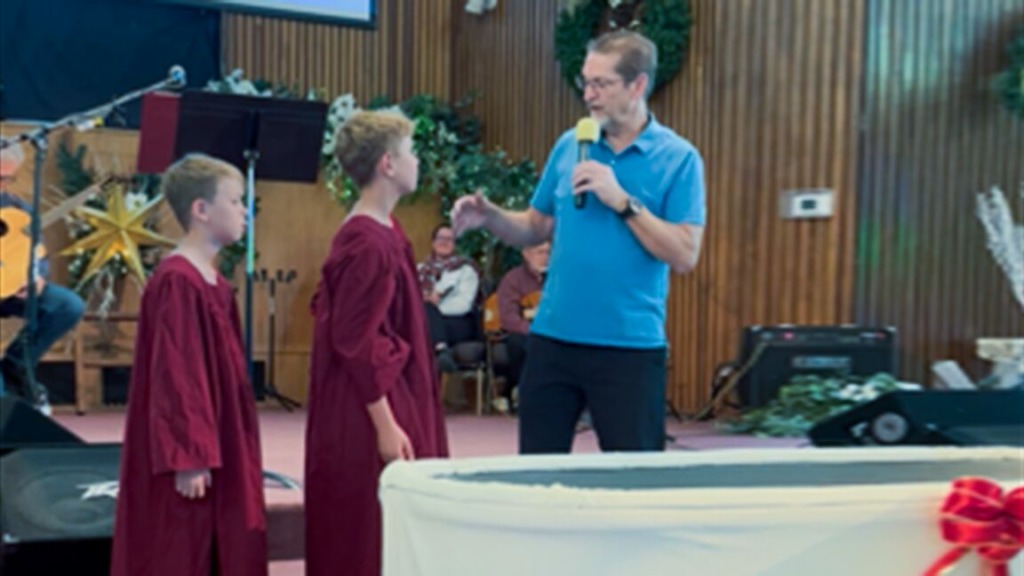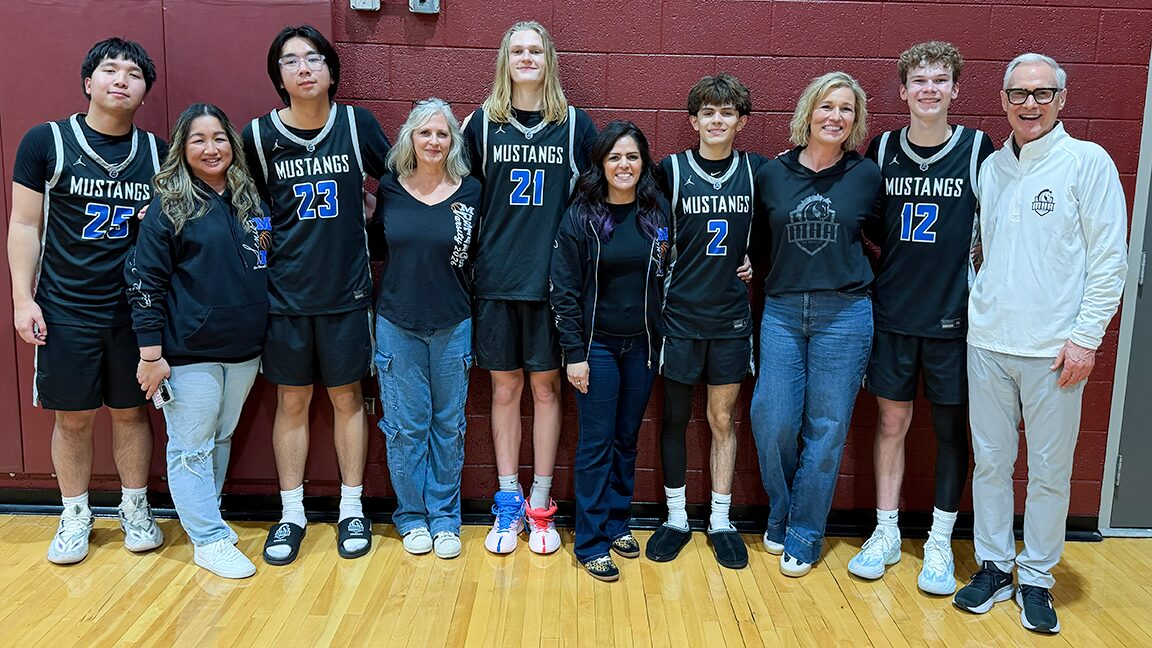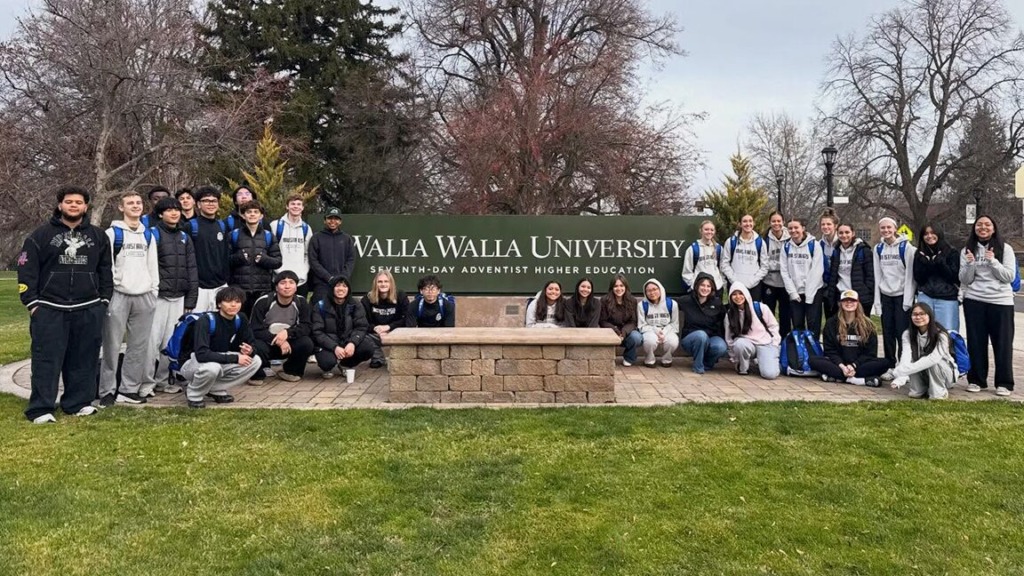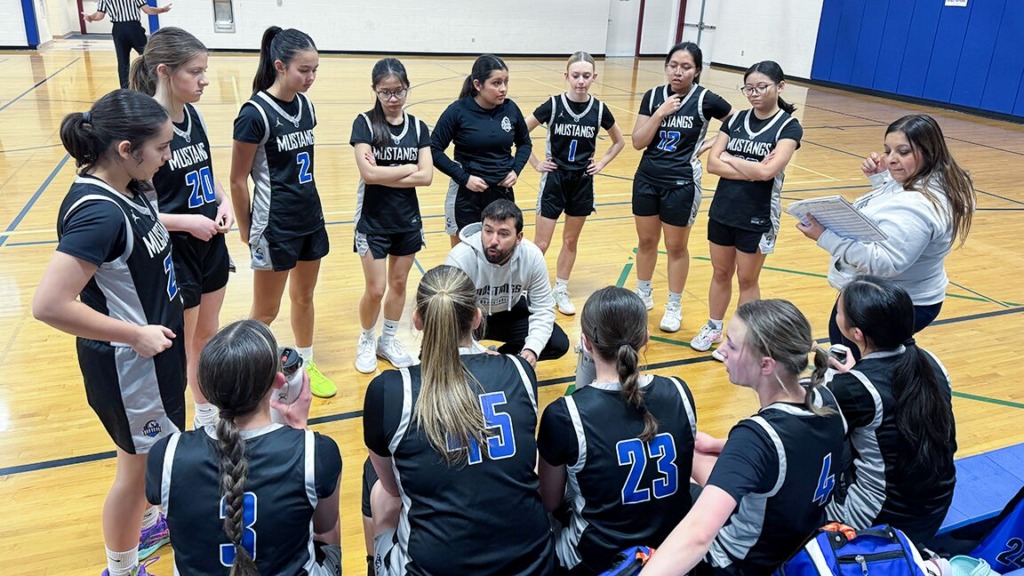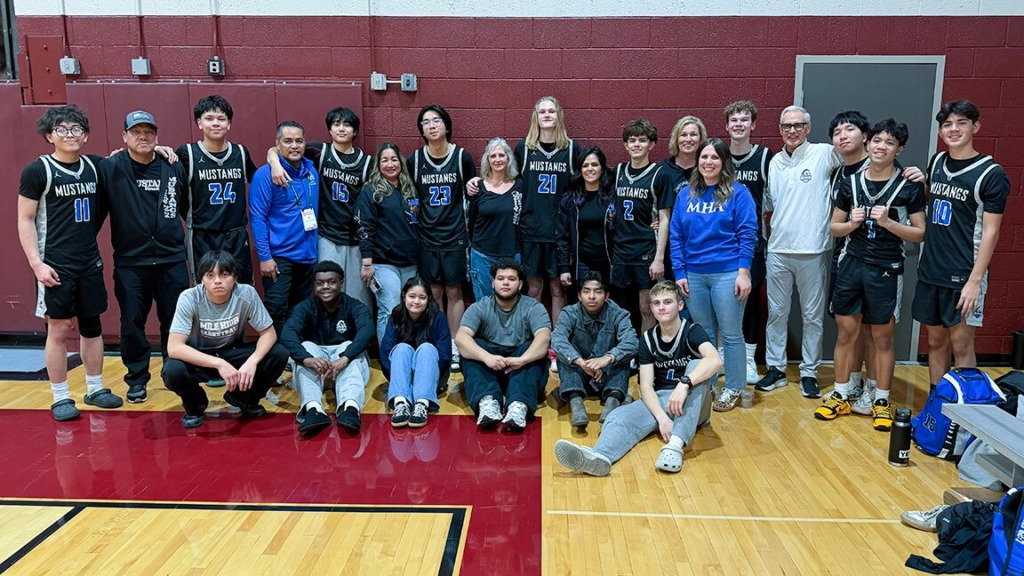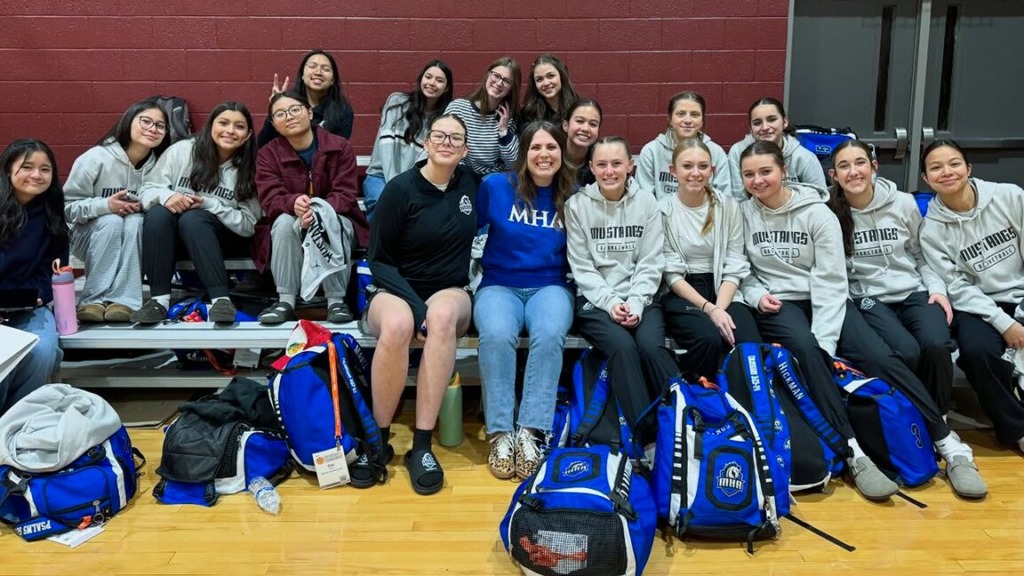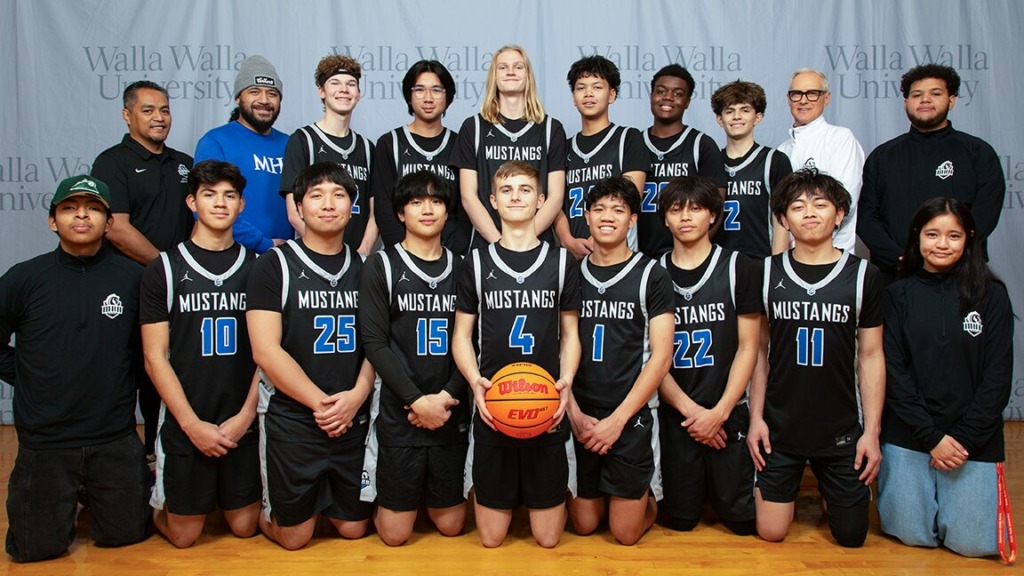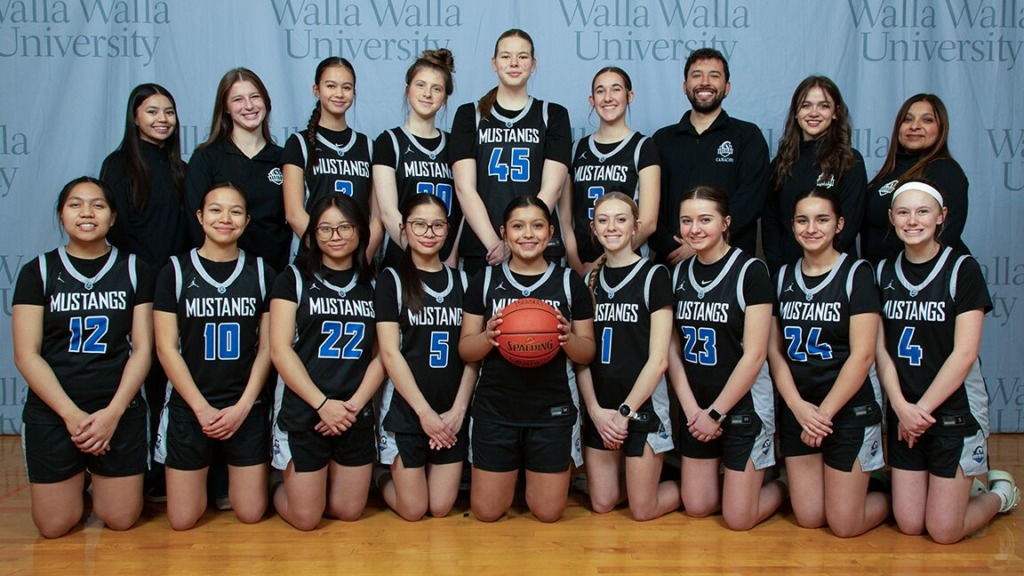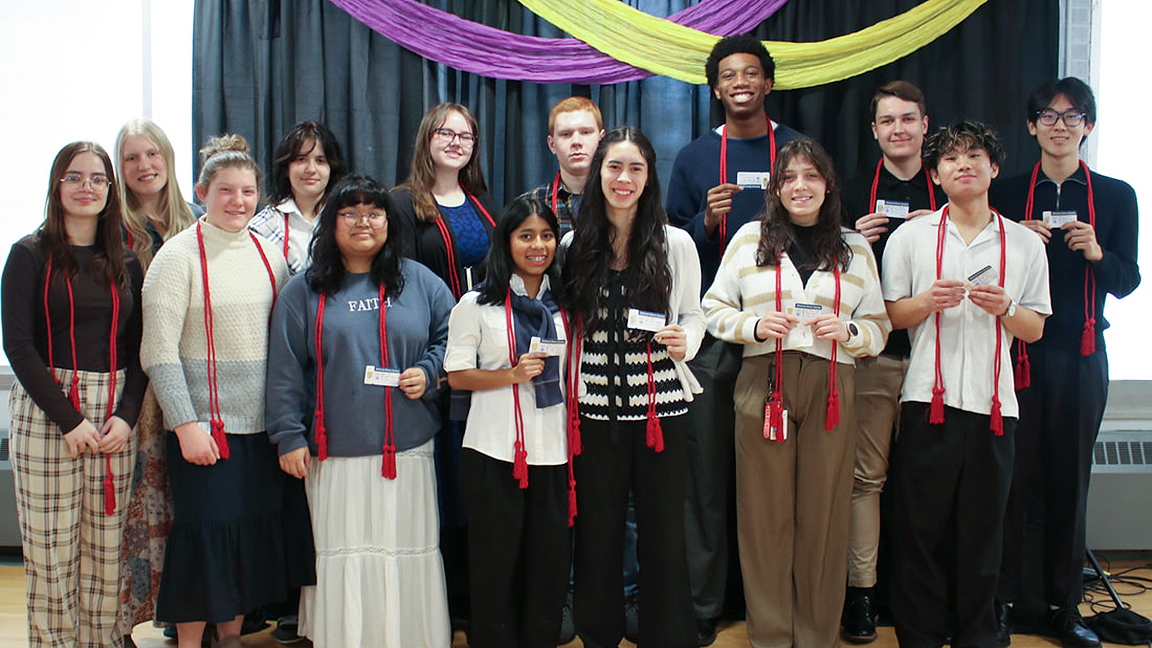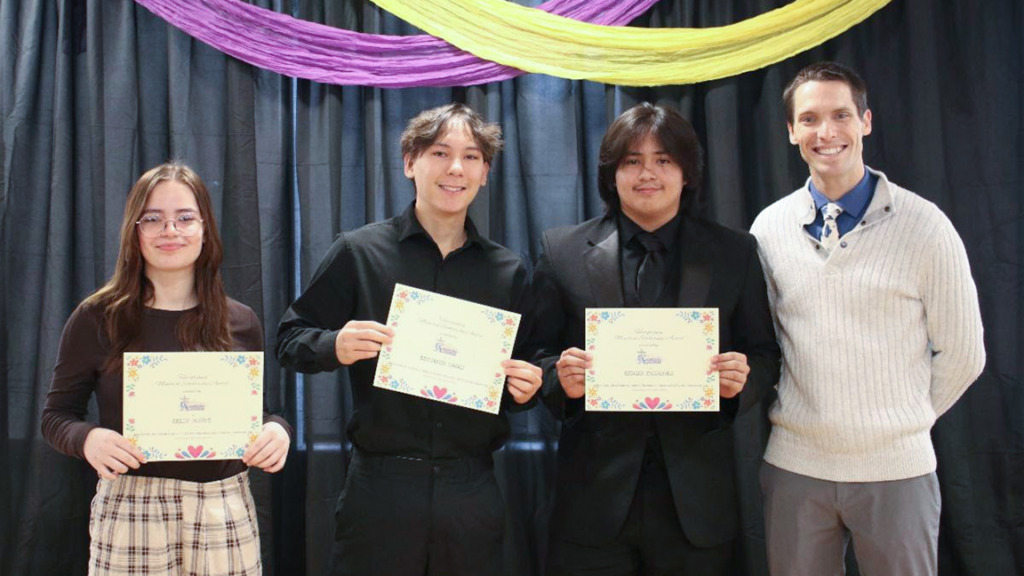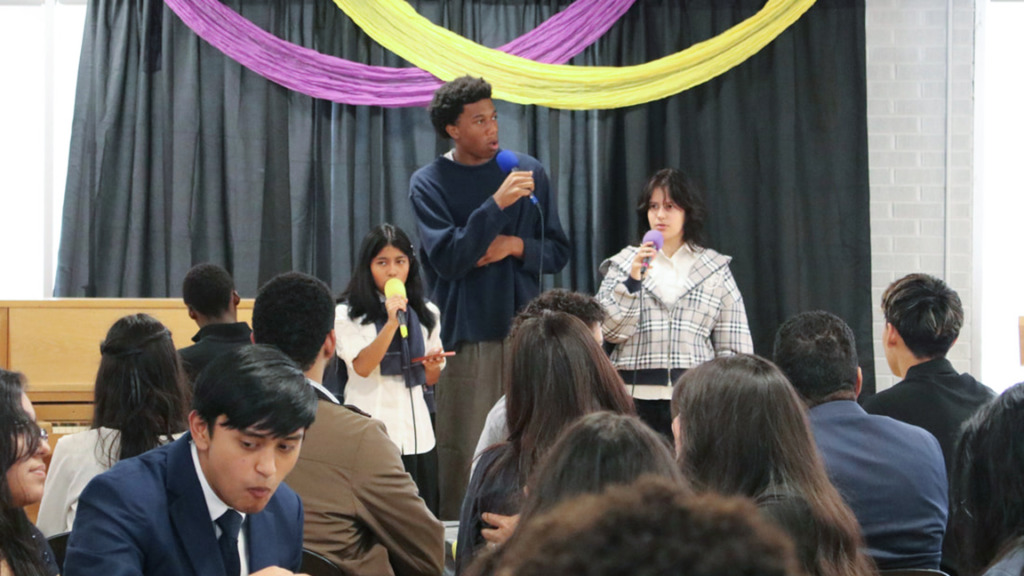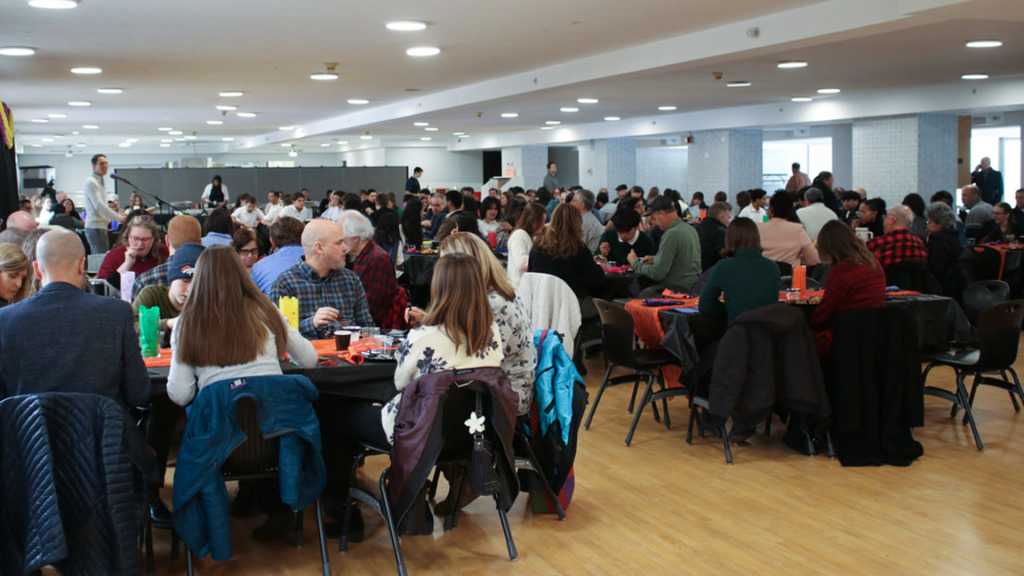Jose Briones – Pagosa Springs, Colorado … Two congregations in Pagosa Springs, Colorado, gathered for a baptism service that emphasized unity in Christ and the strength of shared faith, February 7. The Pagosa Springs Hispanic Seventh-day Adventist Group and the Pagosa Springs Seventh‑day Adventist Church came together to celebrate the baptism of Obed and Blanca Moreno. The service marked the first use of the church’s newly renewed baptistry, adding a meaningful layer to an already significant occasion.
The gathering opened with bilingual hymns sung in English and Spanish at the same time. The Seventh‑day Adventist Hymnal made this possible through its cross‑referenced guide that pairs Spanish and English selections, allowing both congregations to sing together seamlessly. Members from both groups joined their voices, creating a blended sound that many described as a glimpse of the unity believers look forward to in heaven. The music set the tone for the afternoon and reminded those present that no matter where people come from or what language they speak, they are united in Jesus.
The baptism of Obed and Blanca was a long time in the making. Their decision to publicly commit their lives to Christ brought joy to families, friends, and church members. For several years, both had been attending the Pagosa Springs Hispanic Group worship services, which is composed mostly of visitors and had only three baptized members among a regular Sabbath attendance of about twenty‑five. Their baptism represented meaningful growth for the group and encouraged many who have been praying for continued spiritual development within the congregation.
Irene Portillo, a leader within the Hispanic group, spoke about the importance of the day. She said, “We are so happy to have come together for this event. Seeing our small group grow by two more young people who want to be dedicated to God is an immense joy.”
Irene and her husband, Gamaliel, had been the only baptized members of the group living in Pagosa Springs until Saturday afternoon, which made the moment especially meaningful for them. Lemuel Ramirez, an elder with the Durango Spanish Seventh-day Adventist Group, also shared his appreciation for the occasion. He remarked on how grateful they are to see the mission in the western region continue to grow through the faithfulness of members who are committed to nurturing and expanding the work.
The joint service became more than a baptism—it served as a demonstration of unity, cooperation, and shared purpose of the Seventh-day Adventist Church. Members from both congregations left with a renewed sense of connection and a deeper appreciation for what can happen when believers choose to worship together as one family in Christ.
—Jose Briones is the RMC Media and Content creator. Photos supplied.
